Reflecting on the Last Five Years: Progress and Future Trajectories of Social Initiatives
In the spring of 2019, we started communicating about the ‘Sparks’, our cherished team members, as the starting point for Wacom’s Social Initiatives. For this initiative, our Sparks describe why they work at Wacom and are asked the question ‘why do we exist?’ as a company. Team members reflect on what purpose Wacom serves for society at large and also have the chance to ask themselves the same question. As a result of these reflections, various initiatives were launched that we worked on together.
It’s been five years since the initiatives began, and during this time we have been gathering endeavors that are often accompanied with ambiguity within this project. Over the course of these five years, there were things that we were able to accomplish and others that we were not; we experienced clarity and uncertainty, and things we could communicate and others we could not. In this interview, we will reflect upon our five-year journey with CEO Nobu Ide about the intention to connect the future of Social Initiatives with our Meaningful Growth.
(Interviewer: Miki Amano from Wacom’s Social Initiatives)
What exactly are the ‘results’ of the Social Initiatives?
Miki: Over the past five years, we've been sharing what motivates various team members, we call them Sparks. Personally, I've encountered many moments that have moved me, but when I am asked about the ‘results’ as the company’s initiative, I find myself at a loss for answers. What do you see when you look back on these five years?
Nobu: It's challenging to define ‘results’ but I believe there is meaning in each and every thing we've done. One of Wacom's challenges is Meaningful Growth, and with the Social Initiatives, we continue to address the question of how Wacom can engage with society. There's no single answer or goal to that question. It's simply been five years of relentlessly stacking efforts.
Honestly, we're still in the middle of the flowing river. I believe Wacom's role isn't to construct grand edifices but to create small triggers that lead to links, which leave behind traces. These connections are scattered and kinetic, sometimes disappearing and other times reappearing.
We are entrusting ourselves to this flow. Our Social Initiatives are the end of the chain of these connections, the last link so to speak. Wacom has been and will continue to be a vortex. I believe that Wacom's Social Initiatives are a vortex that we ourselves are slowly circulating within when viewed from a distance.
What do Social Initiatives aim for if not to achieve a goal or resolve an issue?
Miki: : Wacom did not choose to pursue easy-to-understand goals or solve problems as a company initiative. As the world continues to change, I believe the question arose whether our goals and challenges should also change. I think some of the team members, including myself, have a feeling that we somehow understand that the direction or approach of the Social Initiatives is not exclusively to achieve KPIs or economic goals, but find it difficult to explain because that’s not the typical approach companies usually take.
Nobu: : We’re not intentionally making Social Initiatives obscure, but I believe that engaging with society isn't about operating within predefined frameworks. We want to be involved in endeavors that are much more realistic, intrinsic, and personally satisfying to us. It's important to note that we're not driven by a grand cause or end goal, but rather, we constantly want to explore what Wacom can uniquely contribute from its own unique position.
This also applies to Wacom's manufacturing process. Creating and selling products always involves inherent contradictions. While we take pride in producing top-notch technology, it can also be seen as technology aimed at maximizing returns for the anonymous masses. On the other hand, the anonymous masses are a culmination of many individuals, and Wacom is constantly sending products to individuals whom we have yet to meet in order to create countless micro-relationships. While this approach may not be the most efficient, there is meaning in not always taking the shortest path, and in the process of the company's growth, we would like to observe these micro links. In this context, aligning with the Sparks among our team members, which is where our Social Initiatives originate from, is deeply connected to the fundamental question of why Wacom exists.
The importance of each individual's ‘Spark’
Miki: The term ‘Sparks’ may be somewhat vague when referring to our team members supporting Social Initiatives, but it began five years ago as something very tangible. Once again, what exactly do the Sparks mean for our Social Initiatives?
Nobu: There might be many who feel that talking about the ‘Sparks’ doesn't concern them directly. While there's no clear-cut definition, I envision this approach as the gentle circulation of individual commitment, shaping Wacom in its own unique way. Each individual's life and personal interests ignite and form a ‘spark’ that fires up our Social Initiatives.
Though it may seem obvious when put into words, each team member has vastly different daily experiences. A diverse collection of microcosms come together, sometimes drawing close, sometimes drifting apart, experiencing moments of interest or disinterest, ultimately forming a single organism – all embodying Wacom. As we contemplate Wacom's engagement with society, amidst the struggles of reality, we aim to elevate experiences and stories that resonate with the human spirit. I believe it's our Sparks that support us in this endeavor.
Current status of the Social Initiatives emerging from the questions posed
Miki: We have asked a number of questions so far, ranging from the huge question of Wacom's raison d'être to the specific question of what we can do for the regions and communities. What do posing questions contribute to our Social Initiatives?
Nobu:All the questions we've asked are interconnected, and what we value as the essence of questioning is that there's no definitive answer or goal. As a manifestation of Wacom's questions, we have Connected Ink, and we've chosen 'ordinary life’ as the theme for 2024. This is because we see Wacom's Lifelong-Ink as something that accumulates in ordinary life. I believe that Wacom's technology can become a protagonist in people’s regular lives. Rather than Wacom changing the world, it's more about Wacom being present in everyday life, blending in. We want to explore what that really means to everyone. We still have more questions; we see them as a means for both Wacom and Social Initiatives to confirm our current position and milestones.
The depth of Sparks is what Social Initiatives intend to communicate
Miki: After reading up to this point, some may feel like they understand, while others may feel like they are still trying to understand. Amidst the gentle cycle of Sparks, what is it that the Social Initiatives aim to communicate as a company initiative?
Nobu: In the creation field, I often encounter warm sentiments towards creation and the profound emotions underlying them which evoke many moving experiences. It may sound forced, but I believe Social Initiatives share a similar essence. It's not about conveying beautiful stories; it's about relating the emotions behind them. There's actually a source of value beyond profit or logic, one that can deeply move hearts and create tremendous impact. We aim to visualize and draw out that essence through our Social Initiatives. By reliving the stories of our team members, we are able to sense how their Sparks resonate and spread to other team members, partners, and communities. Through communicating our efforts, we hope to expand the possibilities for Wacom as a company and contribute to society and the future.
Nurturing our Social Initiatives as a company initiative
Miki: We've introduced over 30 stories on our website, but they represent only a fraction of Sparks from our team members. We've heard voices expressing a desire to participate in Social Initiatives but lacking the opportunities. As a company initiative, shouldn't we create more opportunities to pique interest and encourage more participation in what we do?
Nobu: Absolutely. As the next step, we may need to create more accessible opportunities so more people can participate. I would like to listen to our team members' thoughts and voices as much as possible, beyond the limits of Social Initiatives. Regardless of department or role, if anyone has ideas or suggestions, I encourage them to reach out to me or Miki.
Regarding the next five years, we aim to create a meaningful cycle that cannot be reached in a linear way
Miki: While Social Initiatives often require explanation, I feel there’s a significant amount of enthusiasm when it's passed from one person to another. As a person in charge, I can't predict how many years it will take, but I would like to nurture this initiative so it will last a long time. What are your thoughts for the next five years?
Nobu: With Lifelong-Ink spanning over a longer period of time, our success is not measured by numbers or KPIs. Society and values about success are ever-changing and interpretations are moveable. I think the important thing is understanding the complexity of problems in society – and we can face them with diverse ideas and methods. That’s why each individual’s motivation, or Spark, is considered and that is the core of Wacom’s Social Initiatives.
Since we do not measure our success through KPIs, we'll continue to accumulate efforts earnestly, both in the past and future. Each individual’s s motivation, or Spark, is the core of Wacom’s Social Initiatives – and that is at the heart of what drives us. I believe that from the chain created by these small whirlpools, we can aim for a significant cycle that cannot be reached in a linear fashion. We would like to create meaningful moments while embracing the fear and unknowns within the whirlpool we create ourselves. Even if we may be swallowed by it.



Reflecting on the Last Five Years: Progress and Future Trajectories of Social Initiatives
We will reflect upon our five-year journey with CEO Nobu Ide about the intention to connect the future of Social Initiatives with our Meaningful Growth.

Our Sparks. “Focus: The Autistic Superhero Loves Comic Art!” by Yvonne Wan
Discover the inspiring works of community creators who collaborate with us. Today, we feature “Focus: The Autistic Superhero Loves Comic Art!” by Yvonne Wan.

"CREATE Program" Expanding Future Possibilities and Connecting Hopes
Wacom Canada has been involved with the "CREATE Program" at Sisler High School as a partner to support students who want to embark on career paths in the creative industry.

Our Sparks. “Join The Journey” by Arian Rahmatzai
The 'Our Sparks.' pages showcases community creators whose works inspire and collaborate with us. This time features Arian Rahmatzai's artwork, a German talent who interned at Wacom.
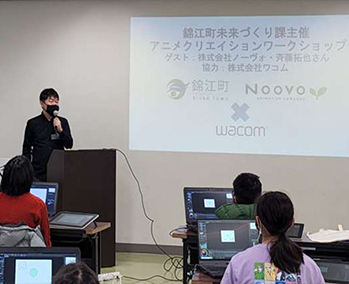
Supporting Children's Dreams of Becoming Creators - 1: Initiatives with Kinko Town
The aspiration of children who dream of becoming creators is what ignites our team members’ enthusiasm and drives many of our initiatives. One such initiative involved teaming up with an animation workshop in Kinko Town, Kagoshima Prefecture, Japan.
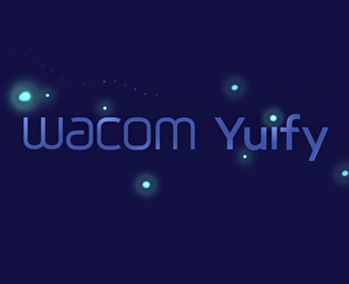
Wacom Yuify: Making the world a safer place for creators
Wacom Yuify is an innovative service being developed to authenticate creators' works by embedding invisible micro-marks into artworks and, therefore, addressing unique needs across various regions and cultures.
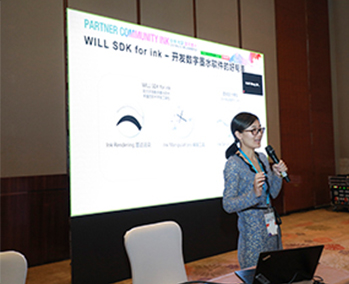
Initiatives in China – Bringing Digital Ink Technology to More People
Lannie Zhang, the only product manager in the Ink Division in China, took the time to talk to us about the initiatives planned to increase awareness and promote the use of digital ink technology.

Our Sparks. “At the beach in the early afternoon” by sammy
We would like to introduce the artworks by artists in Oiso Town, Kanagawa, Japan, where we have been working together to support the writing/drawing initiative.
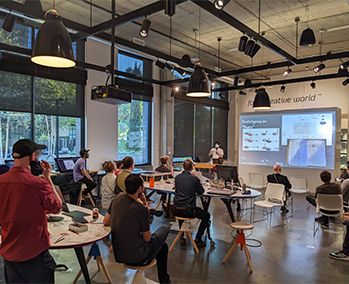
Wacom Experience Center - A space for everyone to be creative
The Wacom Experience Center Portland was created for people to interact with the creative community in the city. We took a look back at its growth with Megan Davis, who has been playing an energetic role there.

Connected Ink 2022: What happens here is everything
Connected Ink 2022 opened with two key questions. Let’s take a look back at some of the sessions in Tokyo that explored them.
Read More
Our Sparks. “Wind Carrying Light” by Syuro
We would like to introduce the artworks by artists in Oiso Town, Kanagawa, Japan, where we have been working together to support the writing/drawing initiative.
Read More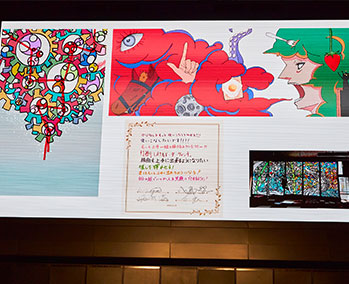
How can we support the “writing/drawing" initiative with Oiso Town?
The partnership with Oiso Town has developed into a city-wide initiative. We spoke with Tadakuni Tsubota of the Creative BU Retail Partnership about this initiative.
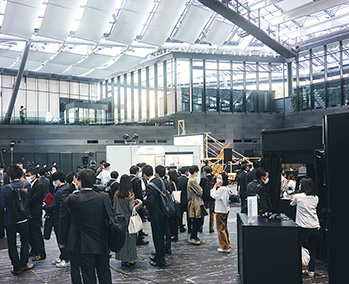
A side of the Connected Ink polyhedron - 2
How do team members see Connected Ink? The next team member is Yohei Himori who is involved in the planning and operation of Connected Ink together with Heidi.

A side of the Connected Ink polyhedron - 1
How do team members see Connected Ink? The first team member is Heidi Wang who has played a key role in the planning and operations when it all began in 2016.
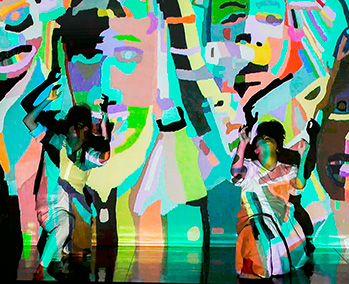
How can we overcome barriers that exist in society? / Call & Response
In collaboration with Heralbony Inc. and the General Incorporated Association, Connected Ink Village, Wacom launched a new initiative called "Call & Response” in September 2021.
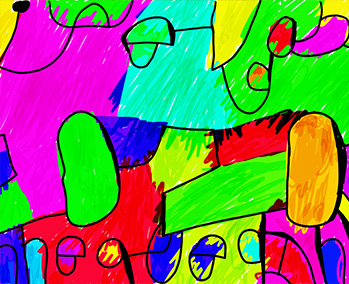
What Lingers in the Afterglow / Connected Ink 2021
Here’s a look back at the opening and finale of the nearly 70 sessions held that day and reflect upon what has happened since Connected Ink 2021.

Our Sparks.
“The spark of love” by Jacky Yang
Our sparks meet constantly changing situations, unexpected challenges, and new opportunities. We called on our team members again to show how they see their spark in the world of today and the future.
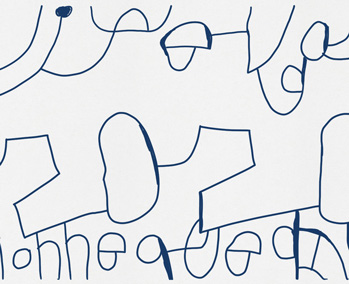
Keep asking questions and moving forward / Connected Ink 2020
Connected Ink 2020 was the beginning of a new commitment and challenge for Wacom to continue asking those eternal questions that always play in our minds.
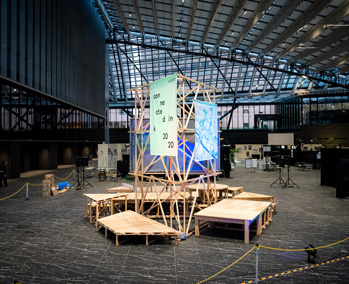
“Stage KOPPA”, a stage that connects stories
"Stage KOPPA" was created as a stage for Connected Ink 2020. It is a stage that changes its shape and role in response to different situations while connecting the various stories that occur there.

Our Sparks.
“Mam and Dad’s Child Interest” by Stella Wang
“Mam and Dad’s Child Interest” by Stella Wang
Our sparks meet constantly changing situations, unexpected challenges, and new opportunities. We called on our team members again to show how they see their spark in the world of today and the future.

Our Sparks.
"A moment on an autumn mountain" by Takahiro Yamamoto
"A moment on an autumn mountain" by Takahiro Yamamoto
We had an internal art contest for our Social Initiatives. Let us share the existence of the spark in our team members’ hearts with their artworks.

Online drawing class for elementary school students during stay-at-home period
Yoshinori Mita, a team member of Japan held an online drawing class together with FC KAZO and illustrator Suiiro to provide something fun for elementary school children to do during the COVID-19 stay-at-home period.
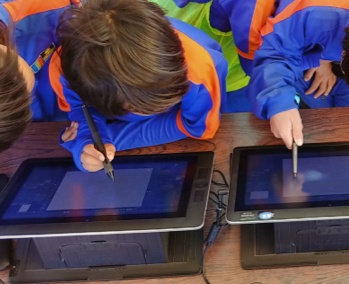
Wacom's new initiative through soccer
As an official partner, Wacom supports FC KAZO, a soccer club in Kazo City, Saitama Prefecture, Japan. We’re excited to introduce our new initiatives with this inspiring club.
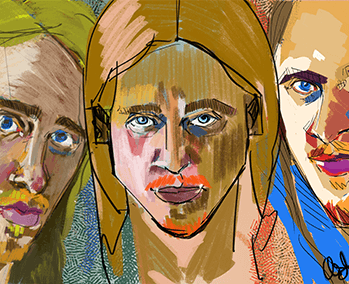
Our Sparks.
"The spark is in you! Mirror portraits during times of isolation" by Oliver Madlener
"The spark is in you! Mirror portraits during times of isolation" by Oliver Madlener
We had an internal art contest for our Social Initiatives. Let us share the existence of the spark in our team members’ hearts with their artworks.
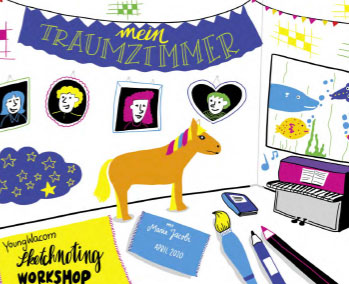
Online Sketchnoting workshop for children during school closures
Our team members in Germany organized an online workshop “Young Wacom” for the children while schools were closed due to the COVID-19 pandemic.
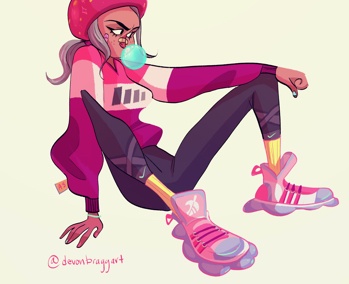
Support the "lives" of artists through customer support
Alex Duffey from our Americas Support team established a new program to support artists. We asked him about a story with Ms. Devon Bragg, the artist who inspired him to establish this program.
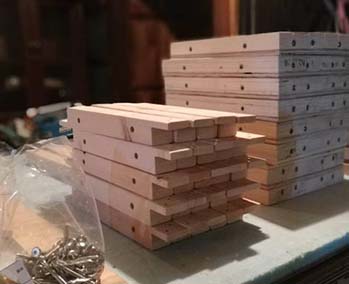
3. How KOPPA began /
The story of the Traveling KOPPA
The story of the Traveling KOPPA
KOPPA began in April 2019. Tamotsu wanted to make something that can be used again after an exhibition. We asked Team KOPPA about their thoughts.

2. No need to destroy it anymore /
The story of the Traveling KOPPA
The story of the Traveling KOPPA
We put it together ourselves, set it up, put it back, then travel together again. The Traveling KOPPA, our new display furniture came to be.

1.Meeting KOPPA /
The story of the Traveling KOPPA
The story of the Traveling KOPPA
KOPPA started out as a challenge: Tamotsu Ito, an architect from Japan, wanted to utilize leftover building materials. Our meeting was pure happenstance.

Our Sparks.
“That Spark Inside” by Simone Wolters
“That Spark Inside” by Simone Wolters
We had an internal art contest for our Social Initiatives. Let us share the existence of the spark in our team members’ hearts with their artworks.
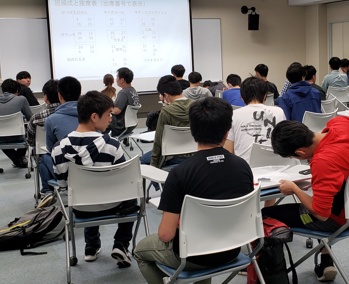
Marketing lecture for future engineers
We gave a marketing lecture for students who are learning to be engineers at the National Institute of Technology Tokyo College.

Efforts by our sales member, who are responsible for a pen tablet until the very end
Every year, we take pen tablets that have been sitting in our warehouse and gift them to high school clubs and winners of high school art competitions to help students create digital contents.
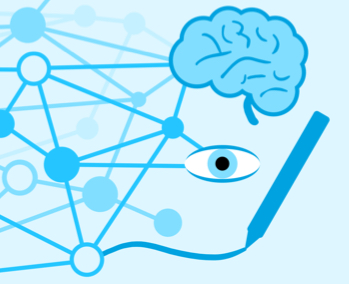
For the Future of Education
Lifelong Ink x AI
Lifelong Ink x AI
"AI Ink for Education" was developed to capture eye movement information and pen movements while learning, in order to ascertain the characteristics of learning by each student and to create an educational environment suited to each student.
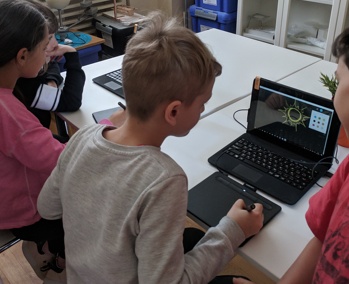
Wacom Intuos have been introduced in a school to make classes more fun and creative
Yoana Simeonova, a software designer working in Bulgaria, introduced Wacom Intuos in a school to make children's IT classes more fun.
























